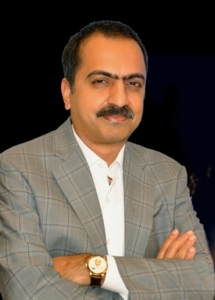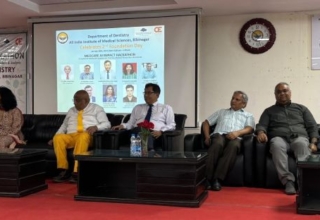
The goal of all education, finally, should be to inculcate a love for learning

We can take inspiration from Finland where more than 50 years ago, the education system was reformed and became an intrinsic part of the country’s economic recovery plan. Professor Pasi Sahlberg, one of the most respecected education specialists from Finland summarized his country’s school education success to just one sentence: Teachers in Finland do not prepare children to take a test, but teach them how to learn. This is the secret of the Finnish education system’s success.
Remarkably enough, every Finnish child has access to the same quality of education regardless of their financial, geographical or social status. This means that students are not labelled as “weak” and everyone is supported to do their best. The reforms and changes in Finland’s education system have impacted generations of students in metamorphic ways. And when in 2000, a standardised Programme for International Student Assessment (PISA), given to 15-year-olds in more than 40 international venues, revealed that Finnish students were the best young readers in the world. By 2006, Finland was first out of 57 countries in science.
All this and more was achieved without mandated tests apart from one at the end of students’ senior year in high school. And without a ranking system that creates unhealthy competition over percentages.
India is a country of huge contrasts and our education system needs to be expansive enough to cater to diverse demographics across metro cities, tier 1 and 2 towns, and rural areas. Equality is the most important word in Finnish education. This is something we could incorporate especially in the wake of the pandemic when so many rural and underserved urban children dropped out of schools owing to digital inequality and poverty.
According to a survey conducted by The National Statistics Office (NSO), in India, 18% and 20% of children drop out from primary and secondary school levels respectively as against 15% and 17% in urban areas. 82. 7% of urban households have schools within 1 kilometre of their households, but in rural areas, the number is as low as 7%. This statistical information must get attention at the highest level and see virtues of access, affordability and equality.
When educational institutions are run only for profit, they prevent deserving but disadvantaged students from rising above their circumstances. And, when our underserved young students fall into the morass of unemployment and poverty in large numbers, our economy also becomes sluggish as a result.
This is why we must appreciate Finland’s foresight in carrying out educational reforms to spur its economic growth half a century ago. I also hope that we in India, take our focus away from examination results and percentages to instead foster a culture of authentic learning and excellence in our schools.
Education is treated as a fundamental right rather than a luxury in Finland. This takes me back to an unpleasant experience I had while looking for a school for my child many years ago here in India. It made me realise that even those of us with relative privilege in India often have to move heaven and earth and pay exorbitant fees to get our children admitted to reputed schools. Compare this to Finland where schools are publicly funded and are run by highly trained educators from government agencies.
Another important point of contrast is unlike in India, where competitive exam coaching centres are mushrooming in every corner, Finland has a large number of vocational high schools and we could use this idea to bridge the gap between educational degrees and employability instead of forcing students to compete for IIT and IIM seats from an early age. A 2020 report by an investment management business, ManGroup, says that there is a talent shortage in 63% of companies in India. Our education system needs to share blame for this.
A paradigm shift could be imminent in India’s education landscape post the introduction of the National Education Policy in 2020. This is meant to reduce the academic load on students and give importance to their holistic development. The 5+3+3+4 model is supposed to encourage communication, creativity, critical thinking, and character development. However, how the policy will be implemented in areas without adequate infrastructure remains to be seen. Rural areas have underpaid and overworked teachers and, in some cases, even paucity of study materials, basic furniture and toilets. These issues must be attended to and our preoccupation with rote learning, dated curricula and the chalk and talk method also need to be re-examined. In Finland, education among other things imparts twenty-first-century competencies and curriculum reforms are common every few years. These way educational methods never get outdated and children are always abreast of the current developments in their subjects.
The goal of all education, finally, should be to inculcate a love for learning because that is the taproot of personal, social and economic transformation.
About my own contribution to this thought process
TreeHouse has introduced life skill courses in banking, aviation, hospitality, E-Commerce, Law, and Business Management for higher classes to address issue of talent shortage. In Treehouse preschools, our focus is more on practical teaching, exploration of the natural world and life skills than just reading and writing though those are important too. The aim is to open the mind, enhance logical reasoning, problem-solving abilities, and cognitive skills and encourage divergent thinking.
For more details visit our website










